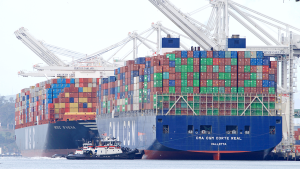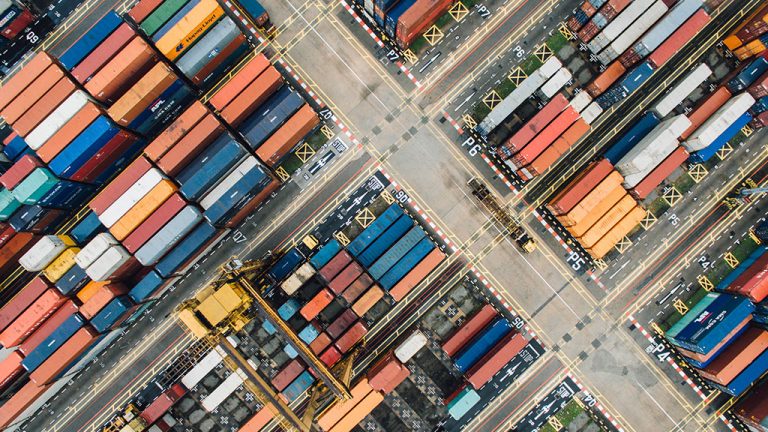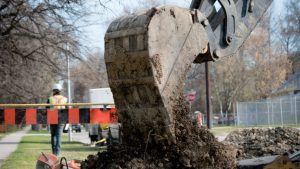Statistics Canada is reporting historic drops in construction investment.
The national statistics office noted that investment in building construction plunged 45.9 per cent this April compared to the previous month.
Previously, the largest national decline on record for the current series, which dates back to 2010, was a 3.9 per cent decrease in August 2017.
Both the residential (-49.2 per cent) and non-residential (-38.8 per cent) sectors experienced record-breaking declines. Investment decreased in all provinces and territories, with Ontario (-$3.2 billion) and Quebec (-$2.5 billion) reporting the largest declines.
Statistics Canada added that public health measures put in place to slow the spread of COVID-19 severely impacted the construction industry in April as the largest provinces in the country halted work at all non-essential construction sites.
“It’s not terribly surprising. It’s hard to identify any category of construction where you would be terribly optimistic,” said Alex Carrick, chief economist for ConstructConnect.
Carrick added he believes many of the changes happening can be summed up with three words: congestion, mobility and preferences.
This does not augur well for the office construction industry,
— Alex Carrick
ConstructConnect
He explained the world is working to avoid congestion to prevent infection, which is impacting people’s personal lives and professional environments. Mobility has decreased in the sense that some borders are closed and physical travel has been discouraged, but Carrick noted that COVID-19 is proving one can work from almost anywhere without a punishing commute.
This has in some ways freed up one’s mobility. In addition to forced behavioural changes, peoples’ and businesses’ preferences could begin to shift, which also impacts construction. All three can be seen impacting all areas of the construction sector, said Carrick.
For example, he explained, before COVID-19 office demand was high due to the growing tech industry in major cities.
“Now a lot of those workers have been sent home and they have been getting by just fine,” said Carrick, who added tenants are subletting to save money or looking into staggering days departments are at the office. “This does not augur well for the office construction industry.”
Retail spaces are also seeing shifts.
“Everyone is buying stuff over the internet,” he said.
Carrick noted that non-store sales (online) have shot up 31 per cent in the U.S. and similar trends are happening in Canada. Many major outlets are shutting stores or mall locations leaving hollowed out spaces.
On the other hand, Carrick explained warehouse spaces have flourished, but more so in the U.S. This is especially true for data centres which, he noted, can technically be built almost anywhere.
The travel sector of construction – airports, hotels and motels – is in dire straights. Carrick said that air traffic has plummeted, leaving questions about major airport expansions. Airlines are laying off employees, cutting back on flights and analysts expect one of the major airlines in the U.S. to collapse. When people don’t travel, they don’t stay in hotels or rent cars. And when people don’t rent cars, fewer cars are being purchased.
“The repercussions go on and on and on,” said Carrick. “People are talking about a ‘V’-shaped recovery and I am having trouble seeing it. There are a whole lot of landmines out there.”
He said eventually stimulus money will run out, late rent will come due and with immigration – a backbone of the country’s GDP growth – slowing, the outlook is tough.
“That has been one of our hidden treasures,” said Carrick on immigration. “But with nobody going anywhere and immigration slowing down that’s a problem.”
Carrick also said infrastructure spending may not look the same as it has during other economic crises.
“In the past I have always been a big proponent of spending on infrastructure, but this is not a normal recession and I don’t know if that is the way to go,” said Carrick. “China is launching its big infrastructure spending, but it is spending in new ways on labs, data facilities and their 5G network. If we are going to have a program, that’s probably what we should be doing.”
He added that pouring money into airports, roads and transit could be risky as how people will behave going forward is still uncertain.
“To some degree the economies that could come out the best will be the ones who keep their debt within a manageable range,” he said.
Follow the author on Twitter @RussellReports.










Recent Comments
comments for this post are closed